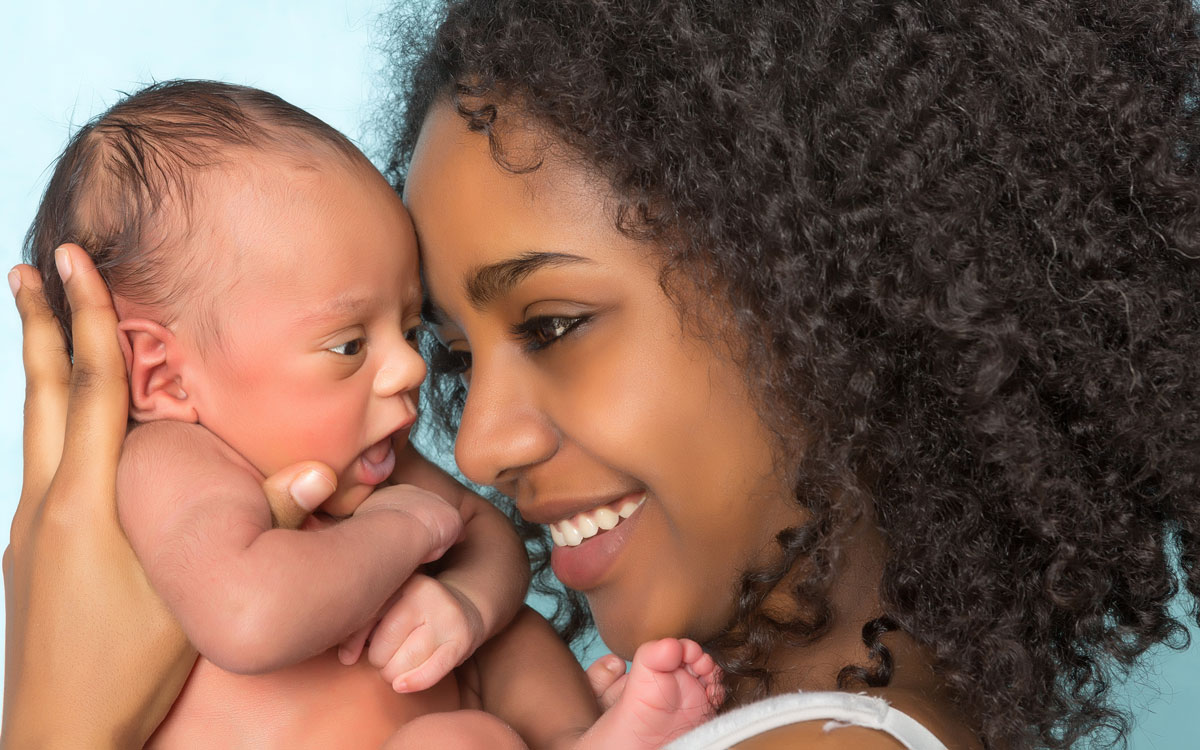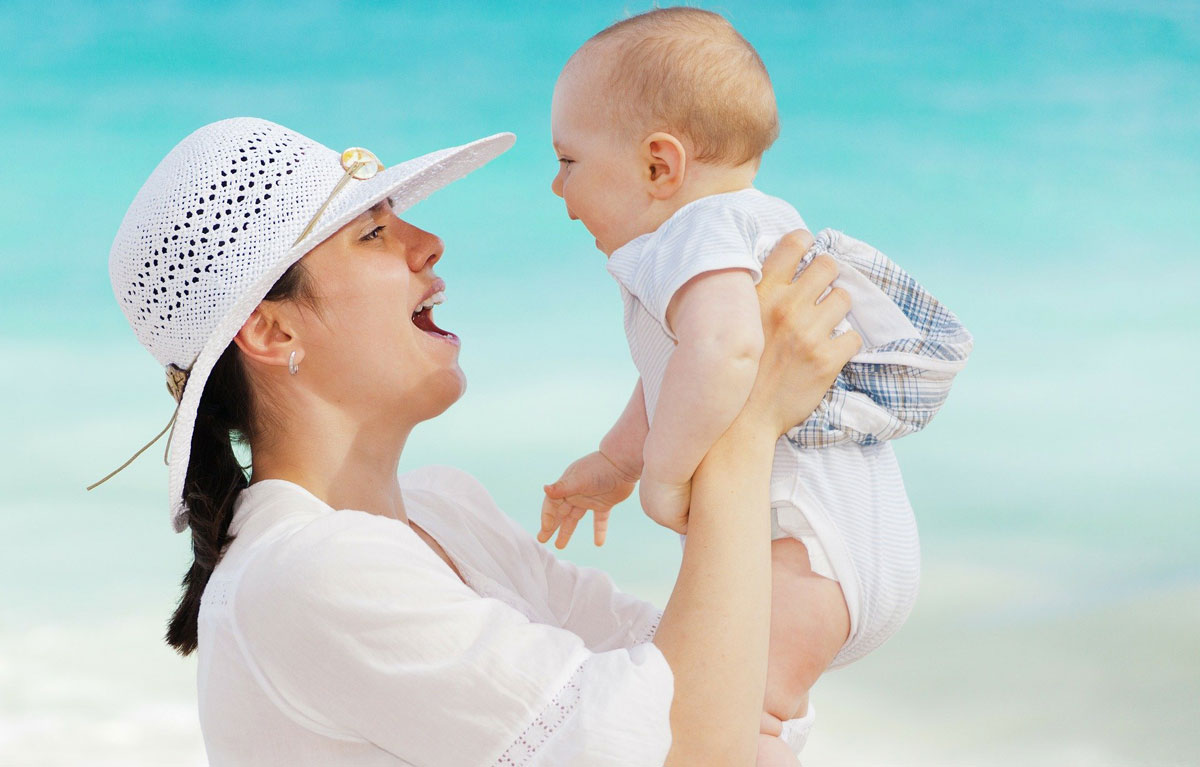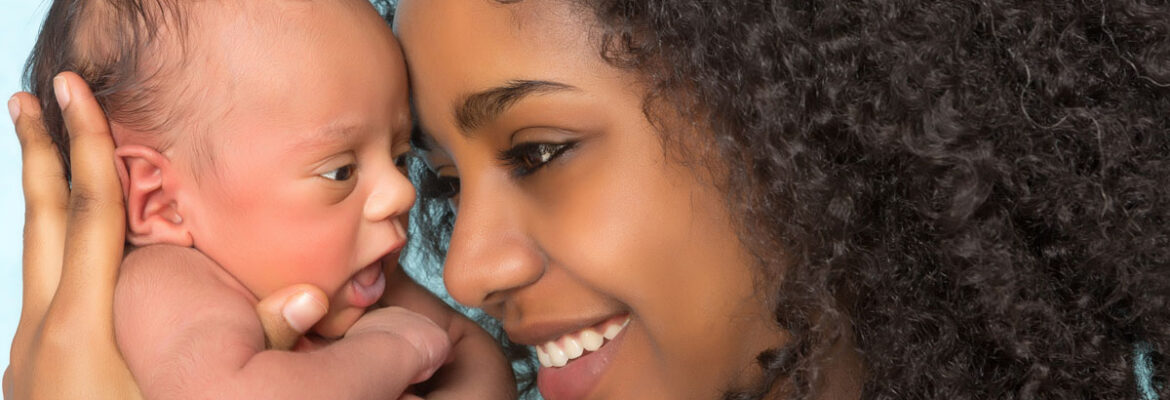Postpartum hair loss – are you going bald, and what can you do to stop it?
Worrying about postpartum hair loss is the last thing you need when you’re adjusting to new motherhood. On top of learning to breastfeed in public, use a baby carrier, and get bub to sleep, why are you losing hair? Could you be going bald? And what can you do about it?

How common is postpartum hair loss?
If bub is two to four months old and you’re now losing hair by the handful, you’re not alone. About 1 in 5 women lose more hair than usual after birth, and it’s more likely to happen after their first baby.
What causes it?
Usually, each strand of hair on your head is at a different point of the hair growth cycle. The cycle starts with the growing or anagen phase. In this phase, hair on the scalp grows for up to six years or longer. Then, growth stops in the catagen phase. Finally, in the telogen phase, the hair rests for one to four months.
The cycle starts again when a new hair grows beneath the old hair, pushing the old hair out. It’s normal for a healthy person to lose about 100 hairs a day. But the vast majority of hairs (85%) are still in the growing phase.
Postpartum hair loss happens when a lot more hair stops growing all at once. It’s possible that the combination of postpartum hormonal changes and the effort of birth temporarily stops hair growth. So, by the time your hair is falling out a few months after delivery, it’s actually because there’s new hair coming up underneath. It stopped growing at birth and is now regrowing.
What are the best vitamins for postpartum hair loss?
Sometimes, when someone has a lot of their hair regrow and fall out simultaneously, vitamins and minerals might help. For example, if you’re low on iron, health care providers might suggest you take iron supplements.
Other vitamins for postpartum hair loss could include low doses of vitamins C and D. However, other studies report that too much vitamin A can increase hair falling out. Some researchers also suggest that zinc and some B vitamins might help, but we don’t have enough information to recommend that.
We should also be cautious about taking vitamins because the research is not always specific to hair loss after birth. Usually, eating a varied, nutritious diet is a tremendous help in getting the vitamins and minerals you need. Talk to your midwife, doctor or dietitian about any supplements you plan to take during pregnancy and breastfeeding.
Are there other treatments for postpartum hair loss?
Researchers have tested various medications to see if they reduce hair loss after birth. The treatments tested include progesterone, oestrogen, horse placental growth factor and thyroid hormones. So far, there is not enough good quality evidence that any of these treatments work.
Will my hair grow back?
Most cases of postpartum hair loss only last a couple of months. Although it’s alarming to see your hair littering the bathroom floor, your luscious locks will likely return.

Other causes of hair loss
If you’re losing a lot of hair, it’s always possible that pregnancy and birth is not the cause. Other causes of hair falling out includes thyroid issues, medications, genetic conditions, stressful events, skin conditions, iron deficiency and many more.
Very occasionally, hair loss after birth can become female pattern alopecia. This type of hair loss is permanent. In alopecia, you would usually see hair disappearing from the top and the crown of the head. Your GP or a dermatologist can help if you think you have any of these conditions.
Otherwise, rest easy that you’re not going bald, and get back to enjoying new motherhood.
Reference List
PBB aims to keep you informed with the latest research-based information. Check out our reference list used in the creation of this article.
Published 10th July 2021
About the Author
Louise Wedgwood is a freelance health and parenting writer, working with magazines, online publications and businesses. She has a background in health science, and enjoys helping parents make evidence-based choices. Her own children have shown her making the right decisions is never black-and-white.
Share this Post
Recent Posts
Recent Comments
- Jane Palmer on Safety of Pineapple During Pregnancy
- Ondřej on Safety of Pineapple During Pregnancy
- Mel on The homebirth of Archie McGuire Wolfe
- Sarah on Fifteen with Twins
- Laura-Jane Marsden on My Story about Teenage Pregnancy
Archives
Categories
PBB’s Social Media Pages
The post Postpartum hair loss – are you going bald, and what can you do to stop it? appeared first on Pregnancy Birth and Beyond.
Read Original Article: Postpartum hair loss – are you going bald, and what can you do to stop it? »




